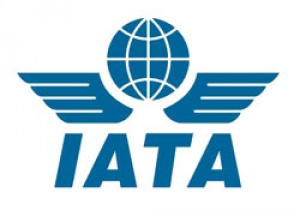IATA report: A step towards the Single European Sky

The International Air Transport Association (IATA) welcomed European Commission (EC) proposals to strengthen the legislative basis for the Single European Sky (SES).
The EC proposals are in response to the failure of European states to make progress toward the SES and its important goals: an improvement in safety by a factor of ten, a 10% reduction in aviation’s environmental impact, a 50% reduction in air traffic management costs and a three-fold increase in capacity. The efficiencies generated will be a catalyst for jobs and growth—critical to Europe as it struggles to revive its stagnating economy.
“The Commission shares the industry’s frustration with the failure of European states to progress the SES. Every year that SES languishes in limbo is a EUR5 billion knock to European competitiveness and costs the environment 8.1 million tonnes of wasted carbon emissions,” said Tony Tyler, IATA’s Director General and CEO.
In February, airspace users (represented by IATA, the Association of European Airlines, and the European Regions Airline Association) published A Blueprint for a Single European Sky (pdf) which set out key SES objectives. These included the establishment of an independent economic regulator; a reduction in Air Traffic Control Centers from 63 to not more than 40; and the modernization of the ATM system.
The EC proposals include several elements which are well aligned with the Blueprint:
ADVERTISEMENT
* The designation of an independent Performance Review Body,
* The unbundling of support services
* Greater independence and competence for Civil Aviation Authorities, and
* The need for more consultation by Air Navigation Service Providers on capital expenditure
“Today’s proposal takes a clear step in the right direction and we look forward to further details. What is missing, however, is the sense of urgency to move these key reforms forward quickly. In some cases, 2020 has been suggested as the deadline. This needs to be advanced. And each element must have a clear deadline,” said Tyler.
IATA noted three specific concerns with the EC proposals:
* The new performance review body must have strong powers to enforce targets
* The clearer role definition and enhanced capabilities of aviation authorities must reduce duplication and not increase costs
* Changing of the definition of Functional Airspace Block (FAB) to ‘an industrial partnership’ gives rise to concerns that states could avoid prosecution for non-compliance with FAB requirements
* IATA also expressed disappointment with strikes and demonstrations called for by the European Transport Workers Federation (ETF) in response to this much-needed modernization of European air traffic management.
“Air travelers should not be held hostage by ETF resistance to critical change. The fears of the ETF, which represents only a portion of European air traffic control officers (ATCOs), are completely misguided. Our Blueprint report shows that the SES is a win-win proposition. Reducing delays, cutting emissions, and raising safety levels will create 320,000 jobs across Europe. And it can be achieved without ATCO job losses. Strikes and industrial action are therefore totally unjustified,” said Tyler.

